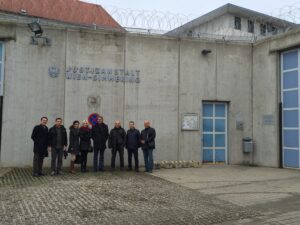
Technical Assistance for Facilitating Access of Disadvantaged Higher Education Students to the Labour Market
Research indicated that disadvantaged people, especially poor students, lack in participation in the labour market. Consequently, the purpose of the project was to increase the employability of disadvantaged people, facilitate their access to the labour market, and increase their access to public employment services. Helping disadvantaged people gain

Technical Assistance for Implementation of Human Resources Development Operational Programme (HRD OP 5.1)
There was a need regarding the implementation of the HRD OP for improving the coordination and control of HRD OP, and by assisting the Operating Structure and relevant institutions in the different programming, monitoring, evaluation and implementing tasks. Within this context of the project, the components were aiming

Technical Assistance for Improvement of Enforcement Services in Prisons (DEPAR)
There was a general recognition that standards and conditions in Turkish prisons needed to be improved and brought into line with international norms, particularly those operating in the EU in the context of closer EU-Turkey integration.

Training for the Institutional Capacity Building on Climate Change Adaptation
The overall objective of the project is to improve climate change adaptation knowledge and the capacity of the Staff of Turkish institutions (members of CBCCAM (Climate Change and Air Management Coordination Board) for implementation of adaptation policies and projects.

Technical Assistance for Promoting Women’s Employment in Turkey
The employability of women has been a challenging issue in Turkey for decades. The labour market of women needs to be improved in terms of the existing capacity to design, develop and implement policies to attract and retain more people in employment, particularly by increasing the participation of

Strengthening Vocational Qualifications Authority (VQA) and National Qualifications System (NQS) in Turkey
It can be claimed that the labour markets are required to ensure the provision of formal and non-formal education and training, to support life-long learning, strengthening the relationship between education and employment, and facilitating harmonization with the European Qualifications Framework (EQF). Within this scope, the project aimed to

